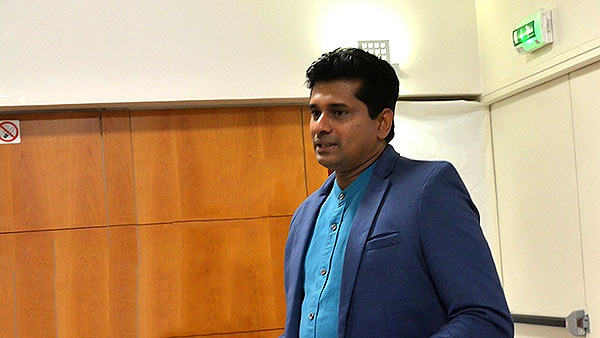Over 95% individuals developed antibodies against Sinopharm vaccine: Prof. Jayasumana

The research group of Sri Jayawaradnapura University has found that the Sinopharm COVID-19 vaccine produced antibodies in 95 percent of vaccinated people and was very effective against the delta variant, State Minister Prof. Channa Jayasumana said.
He said 95 percent of individuals appear to seroconvert following the Sinopharm/BBIBP-CorV vaccine, and the vaccine appears to induce similar levels of ACE2 receptor blocking antibodies and RBD binding antibodies to B.1.617.2 as seen following natural infection.
Meanwhile, the research group of Sri Jayawaradnapura University said the Allergy, Immunology and Cell Biology Unit, Department of Immunology Molecular and Molecular Medicine investigated immune responses to the Sinopharm vaccine and found that the vaccine induced antibody responses in over 95% of individuals, similar to levels seen following natural COVID-19 illness.
“Over 95% of individuals in Sri Lanka developed antibodies against the Sinopharm vaccine. 20 to 39 years old had very high seroconversion rates (98.9%), although the seroconversion rates in individuals >60 years of age (93.3%) were lower. The vaccine induced neutralizing antibodies in 81.25% of vaccine recipients and these neutralizing antibody levels were similar to levels seen following natural infection. The antibody levels to delta and beta, were similar to levels following natural infection although the antibody levels were lower for alpha. The vaccine recipients only had a 1.38-fold reduction in antibody titers to delta compared to the Wuhan variant, compared to a 10-fold reduction to beta. The vaccine also induced T cell and memory B cell responses,” the Research team said.
“This vaccine was found very effective for the Delta variant as well. The antibody responses to delta variant and neutralizing antibodies were similar to levels seen following natural infection,” it said.
The research team included scientists from the Allergy, Immunology and Cell Biology Unit, Department of Immunology Molecular and Molecular Medicine, including Prof. Neelika Malavige, Dr. Chandima Jeewandara, Colombo Municipality Council and included researchers from University of Oxford including Prof. Graham Ogg and Prof. Alain Townsend. The funding for this study was provided by the World Health Organization, UK Medical Research Council and the Foreign and Commonwealth Office and the Chinese Academy of Medical Sciences (CAMS) Innovation Fund for Medical Science (CIFMS), China.
(Source: Daily Mirror)
Latest Headlines in Sri Lanka
- Sri Lanka President calls for restoring trust in justice system January 6, 2025
- Parliament tea party costs higher due to inflation: Official clarification January 6, 2025
- Salochana Gamage further remanded in Rs. 9 Million bribery case January 6, 2025
- Cardinal Ranjith calls for immediate constitutional reforms January 6, 2025
- Manusha’s brother Thisara further remanded in Rs. 3 Million job scam January 6, 2025


